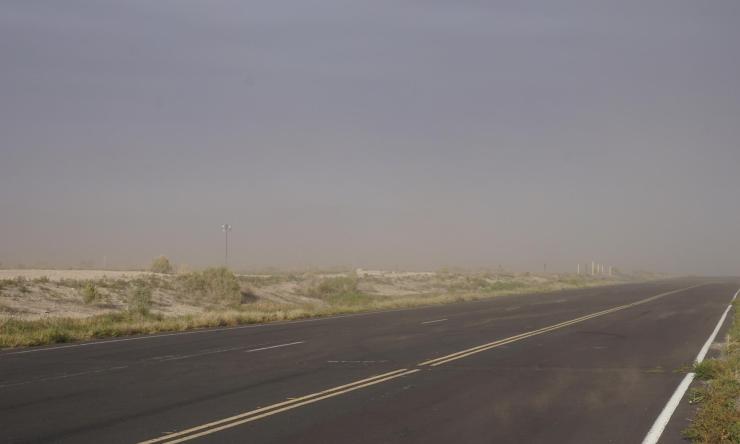Tips to cope with Saharan dust
The Saharan dust cloud covering the air in parts of Texas has the potential to cause problems for people with asthma, allergies and chronic obstructive pulmonary disease. An allergy expert at Baylor College of Medicine offers tips on coping with the dust.
Individuals with seasonal allergies may encounter the typical bout of runny noses, sore throats and itchy eyes, according to Dr. David Corry, professor of medicine in the section of immunology, allergy and rheumatology at Baylor. With COVID numbers on the rise, doctors also are concerned that more individuals who have COVID may experience respiratory problems while the dust is in the air.
Corry offers the following tips:
- Stay indoors as much as possible while the dust is in the air or wear a mask while outside
- Run a HEPA filter indoors to purify air, especially in the bedroom
- Patients who use rescue or controlling medications for pulmonary conditions should have them on hand at all times and use as prescribed
- Seek professional medical advice at the first sign of difficulty breathing
- For less severe symptoms, standard allergy medications such as antihistamines and steroid nasal sprays might be helpful
- If you are experiencing a sore throat and runny nose and are unsure whether it is COVID, get tested










